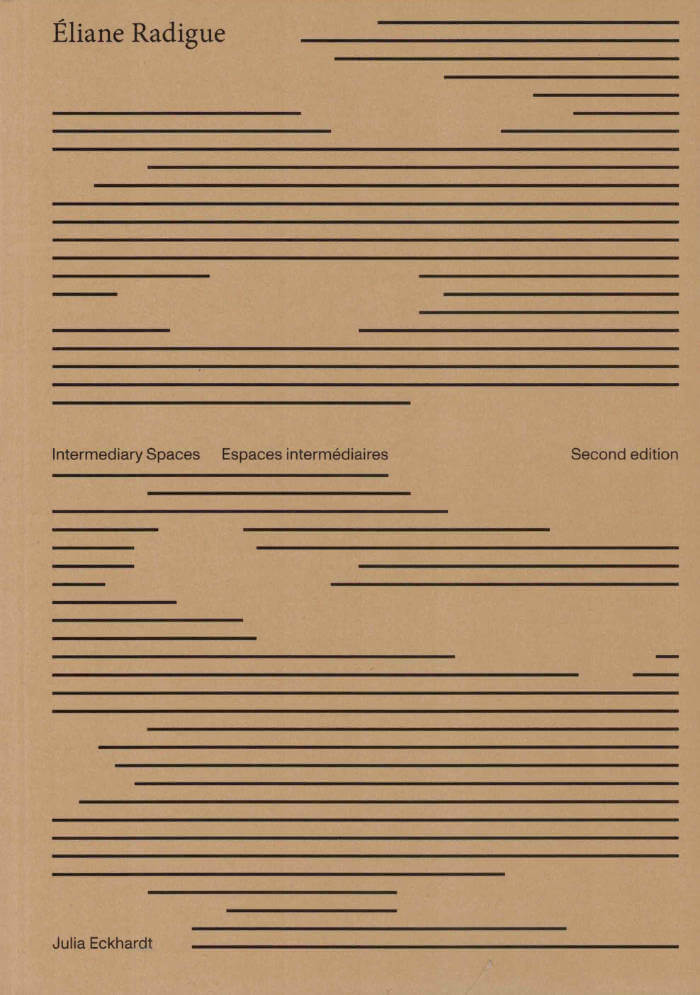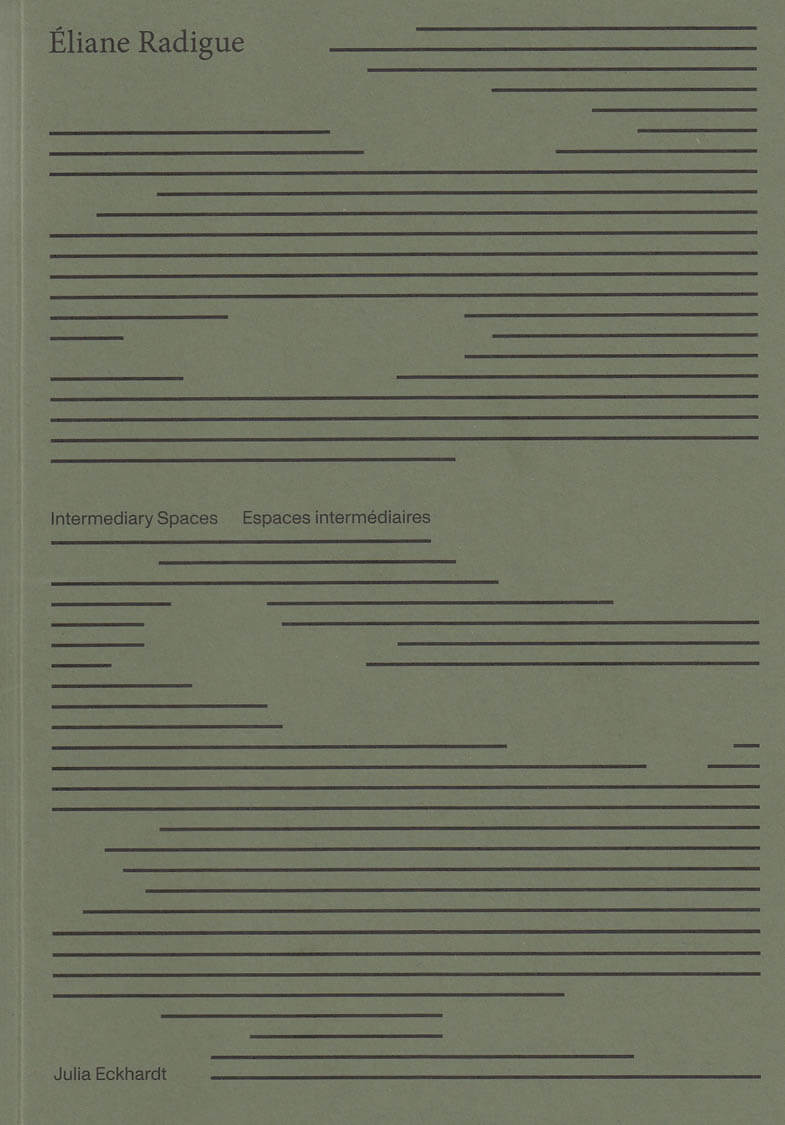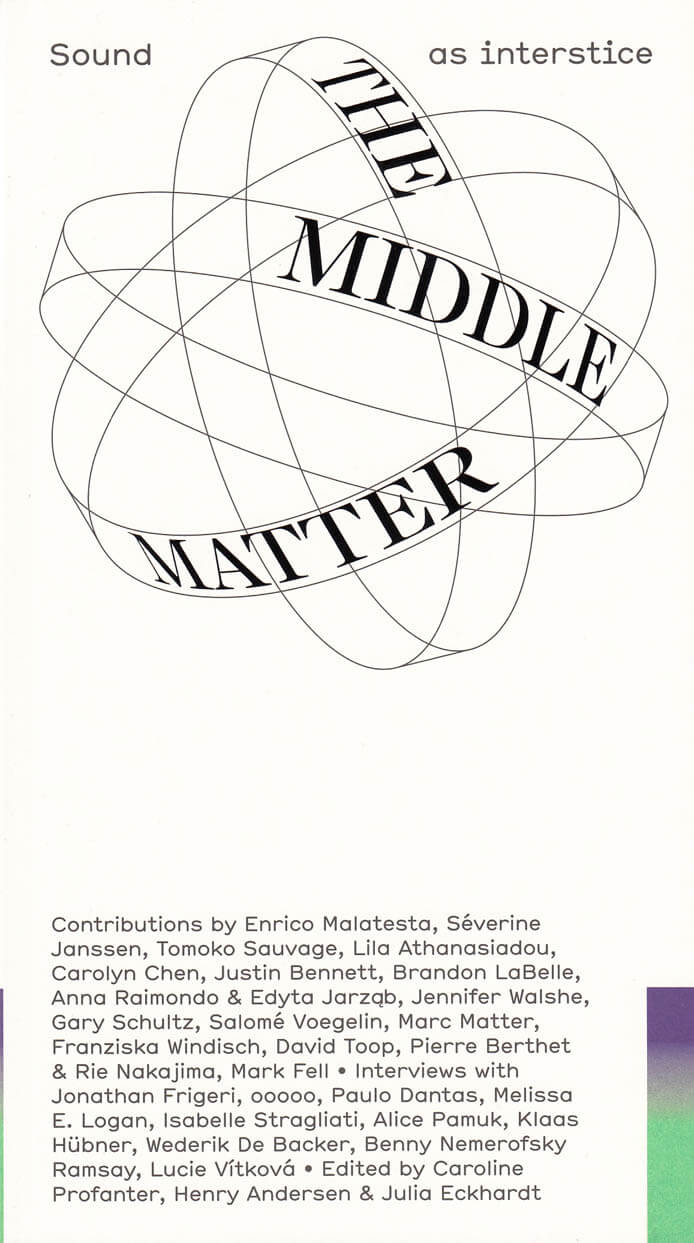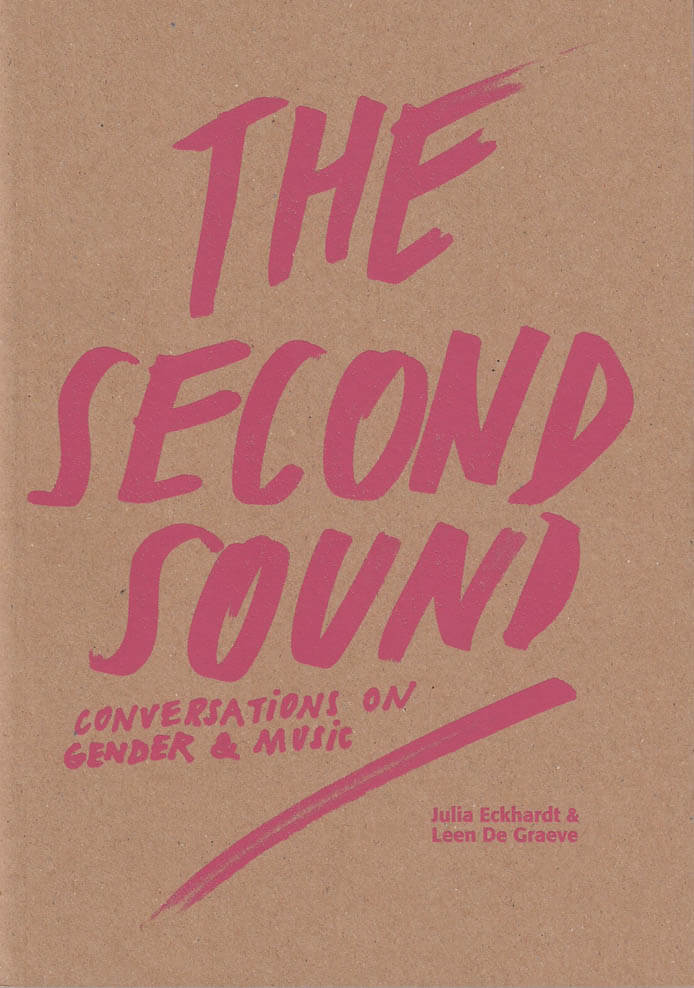Umland / Q-02
Umland / Q-02

Intermediary Spaces (2nd edition)
Julia Eckhardt, Éliane Radigue
In the long interview that forms the body of this publication, Éliane Radigue talks about her work, her reflections and underlying research, as well as her historical context. The publication also contains a commented list of works and Radigue's programmatic text on The Mysterious Power of the Infinitesimal.
New expanded edition of the book first published in 2019.
Éliane Radigue (born 1932 in Paris) is considered one of the most innovative and influential contemporary composers, from her early electronic music through to her acoustic work of the last fifteen years. Influenced by musique concrète and shaped by regular sojourns in the United States, where she discovered analogue synthesisers, her work unfolds an intensity which is at once subtle and monumental. Through her deep reflections on sound and listening, not only her music but also her working methods have come to shape a widely resonating set of new parameters for working with sound as musical material.
Julia Eckhardt is a musician and curator in the field of the sound arts. She is a founding member and artistic director of Q-O2 workspace in Brussels, for which she conceptualized various thematic research projects. As a performer of composed and improvised music she has collaborated with numerous artists, and extensively with Eliane Radigue. She has performed internationally, and released a number of recordings. She has been lecturing about topics such as sound, gender and public space, and is (co-)author of The Second Sound, Conversation on Gender and Music, Grounds for Possible Music, and The Middle Matter, Sound as Interstice.
Edited by Julia Eckhardt.
Texts by Éliane Radigue and Julia Eckhardt.

Going Out – Walking, Listening, Soundmaking
Going Out explores the relationship between walking, listening, and soundmaking in the arts – from the first soundwalks and itinerant performances in the 1960s to today’s manifold ambulatory projects. The book consists of an extensive essay by Elena Biserna followed by an anthology of 51 historical and contemporary contributions in the form of documentation, essays, interviews, manifestos, scores, narratives and reflections.
Essay by Elena Biserna.
Contributions by Max Neuhaus, Willem de Ridder, William Levy, Collective Actions Group, David Helbich, Janet Cardiff, Jacek Smolicki, Carolyn Chen, Tao G. Vrhovec Sambolec, Hildegard Westerkamp, Albert Mayr, Tim Ingold, Akio Suzuki, katrinem, Beatrice Ferrara & Leandro Pisano, Catherine Clover, AM Kanngieser, Gascia Ouzounian & Sarah Lappin, Ultra-red, Vivian Caccuri, Stefan Szczelkun, LIGNA, Edyta Jarząb, Oupa Sibeko, Brian Hioe, Brandon LaBelle, Adrian Piper, Andra McCartney & Sandra Gabriele, Amanda Gutiérrez, Jennifer Lynn Stoever, Stephanie Springgay, Carmen Papalia, Christine Sun Kim, Charles Eppley, Budhaditya Chattopadhyay, Viv Corringham, BNA-BBOT, Ella Parry-Davies & Ann, Mendi + Keith Obadike, Gwenola Wagon & Stéphane Degoutin, Eleni Ikoniadou, Justin Bennett, Christina Kubisch & Christoph Cox, RYBN, Alisa Oleva, Naomi Waltham-Smith, Anna Raimondo, Libby Harward.

Intermediary Spaces
Éliane Radigue, Julia Eckhardt
In the long interview that forms the body of this publication, Éliane Radigue talks about her work, her reflections and underlying research, as well as her historical context. The publication also contains a commented list of works and Radigue's programmatic text on The Mysterious Power of the Infinitesimal.
Éliane Radigue (born 1932 in Paris) is considered one of the most innovative and influential contemporary composers, from her early electronic music through to her acoustic work of the last fifteen years. Influenced by musique concrète and shaped by regular sojourns in the United States, where she discovered analogue synthesisers, her work unfolds an intensity which is at once subtle and monumental. Through her deep reflections on sound and listening, not only her music but also her working methods have come to shape a widely resonating set of new parameters for working with sound as musical material.
Julia Eckhardt is a musician and curator in the field of the sonic arts. She is a founding member and artistic director of Q-O2 workspace in Brussels, for which she conceptualized various thematic research projects. As a performer of composed and improvised music she has collaborated with numerous artists, and extensively with Eliane Radigue. She has performed internationally, and released a number of recordings. She has been lecturing about topics such as sound, gender and public space, and is (co-)author of The Second Sound, Conversation on Gender and Music, Grounds for Possible Music, and The Middle Matter, Sound as Interstice.
Second edition (2020).

The Middle Matter – Sound as interstice
Caroline Profanter, Henry Andersen and 1 more
This reader brings together artistic and theoretical contributions on the instertitial nature of sound. This issue is addressed through a variety of prisms, such as format, language, politics, or new technologies.
The Middle Matter is a reader which brings together thoughts on the nature of sound; its substance, specific qualities, and potential—with a specific curiosity to its propensity to occupy the spaces in-between, the instertitial gaps between different spaces, times, cultures, and world views, between the interior body and the exterior space.
Through a number of artistic and theoretical contributions, observations are made around the notion of “audience” and the attendant questions of format, on the effects of old and new technologies, of communal working processes, and the complexity of language, the contributors reveal sound to be a material particularly apt at negotiating these zones of and between contact.
It is a large field of in-betweenness, sound travels, hops borders, passes through walls, its messages for a large part being transported involuntarily and even unconsciously. In this sense sound is extensively participative, entangled in the complicated gaps between bodies, minds and objects through and against which it resonates.

The Second Sound
Julia Eckhardt, Leen De Graeve
The Second Sound is an imaginary conversation based on the testimonies of musicians and sound artists on the role of gender and sex within their field.
Gathering anonymous testimonies from artists of different backgrounds into a single stream of (often contrary) opinions, the book addresses discrimination as a paradigm of otherness, the possibility of gendered music and sound art, and how sound artists and musicians navigate the field.
The Second Sound raises questions such as: How do life circumstances find their way into music and sound art? How does music reflect historical and social structures? What does discrimination do, and how can we navigate around it? Is the under-representation of women and LGBTQ people in the field a symptom or a cause? Is art itself gendered? And can it reflect the gender of its maker? Is a different way of listening needed to more accurately understand those voices from outside the historical canon?
Although this book raises more questions than it answers, it came to be a pledge for embracing artistic differences, for the richness of contextual listening, and for honesty in the expression of concerns and doubts. The responses seem to suggest that understanding differences by theme and not as predetermination is a way to provide freedom in a field of seemingly abstract art.